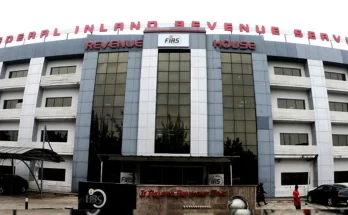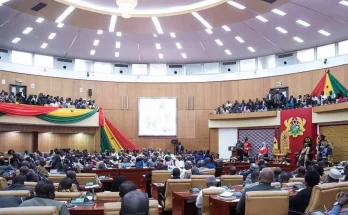At a time when the nation is in dire need of revenue, the Federal Inland Revenue Service, FIRS has shown massive potential in revenue generation.
The Federal Inland Revenue Service, FIRS has declared the highest tax collection in Nigeria. This is the major highlight of the agency’s scorecard of revenue drive in 2022.
The apex tax collection agency in the country declared a total of ₦10.1 trillion in tax revenue from both oil and non-oil sources. This is away from the agency’s target of ₦10.44 trillion.
Statistics also show that from oil sources, the FIRS collected ₦4.09 trillion representing 49% of the total collection while non-oil sources raked in the sum of ₦5.96 trillion to represent 59% of the total collection. This is also unprecedented, having non-oil sources superseding the nation’s overly oil dependence.
It is important to note that this is the first time the FIRS will cross the ₦10 Trillion mark.
Highest Tax Collection in Nigeria: Breakdown
For the 2022 impressive record, Companies Income Tax, CIT generated the sum of ₦2.83 trillion while the viable Value Added Tax, VAT raked in a total of ₦2.51 trillion leaving the Electronic Money Transfer Levy at ₦125.67 billion and Earmarked Taxes stool at ₦353.69 billion.
The ₦10.1 trillion breakdowns above do not include tax waivers and tax incentives granted under different tax laws reaching a total sum of ₦1,805,040,163,008.
The sum of ₦146.27 billion represented the total value of certificates issued by FIRS to private investors and NNPC for critical infrastructure under the Road Infrastructure Development Refurbishment Investment Tax Credit Scheme. This scheme is empowered by Executive Order 007 of 2019.
Reasons for FIRS’ Outstanding Performance
The agency in a recent press statement had stated that the impressive performance streak is due to the four major cardinals currently pursued by the Muhammad Nami-led administration.
These four cardinals are; Administrative and Operational Restructuring; Making the service more customer-focused; Creating a data-centric institution; and automation of administrative and operational processes.
The FIRS also hammered on how operationalizing data mining has helped the agency data-backed taxpayer profiling.
Detoxification of the tax environment by tackling the issue of mutual mistrust, negative tax morale and tax evasion are other strategies deployed by the agency through taxpayer education and stakeholder engagement.
The TaxPro Max platform was also hailed as a major contributor to FIRS reaching the ₦10 trillion mark because it has ensured the automation of most administrative and operational procedures.
Statement on the impressive run as deduced from FIRS
See below, for highlights of statements of FIRS’ impressive run.
The reforms introduced at different times in 2020 are gradually yielding fruits. By the close of 2022, the service had fully restructured the administration of Service for maximum efficiency and achieved internal cohesion such that all functional units are working in unison towards the achievement of set goals.
As a result of the conducive environment created for staff, officers of the service are pulling their weight on the global stage with intentional recognition and awards.
The Service also automated most of the administrative and operational processes. A major leap was the full deployment of the TaxPro Max for end-to-end administration of taxes in June 2021.
The module for the automated TCC went live 1st of January 2023 while taxpayers have already downloaded over 1,000 TCCs this year without having to visit the FIRS office.
Statement from Johannes Oluwatobi Wojuola, Special Assistant to the Executive Chairman, FIRS (Media & Communication) signed on Monday, January 24th 2023.
FIRS’ Chairman’s Reaction
The Chairman of the FIRS, Muhammad Nami has expressed delight in this record-breaking performance. He reiterated that policy reform and rigorous implementation are reasons for the outstanding breakthrough.
Nami further stated that staff commitment and the adoption of innovative technology played no small impact in the actualization of the report.
In his words
We have peaked but this is not certainly our peak. I hope that this would be the least sum the service will ever collect going forward.
Our goal is to identify more areas where we can improve the delivery and efficiency of our collection, and plug loopholes while deploying innovative reforms in data and artificial intelligence.
Ultimately, we believe that the FIRS can shoulder the responsibility of providing the revenue needed for the governments across the federation to cater for the needs of the Nigerian people through taxes.



